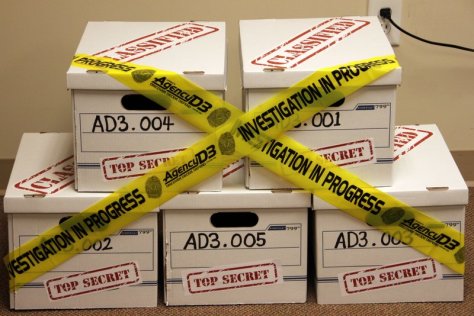
Previously, I blogged about the historical criteria that historians use to evaluate documents. One of the criteria is “multiple independent sources”. If a story is reported in multiple independent sources, then historians are more likely to evaluate it as historically accurate. But how about the four gospels? Are they independent sources? The answer might not be what you expect.
Here’s how the question was put to Dr. Craig:
The latest video, “Did Jesus Rise From the Dead,” is especially compelling, but I had a question about it. In the part one video, you cite as evidence, the Gospels plus Acts and First Corinthians and you refer to them as “independent” and “unconnected” sources. But this isn’t exactly true, is it? After all, two of these books were written by the same author, Luke, and so Luke and Acts are connected by authorship. Furthermore, isn’t it true that much information relayed in Matthew and Luke were taken from Mark? This two facts would make it untrue to call the Gospels “independent” and “unconnected” would they not?
Here’s the video he’s talking about:
Dr. Craig answers the question in his latest question of the week. I think this answer is important for those who aren’t aware of how the gospels are organized.
He writes:
The objection is based on a simple misunderstanding. It assumes that the sources I’m referring to are the books of the New Testament. But that’s not what I’m talking about.
New Testament critics have identified a number of sources behind the New Testament, sources on which the New Testament authors drew. For example, Matthew and Luke drew not only upon Mark as a source but also upon a source which scholars designate “Q,” which appears to have been a source containing Jesus’ sayings or teachings. Thus, if you could show that a saying in Matthew or Luke appears in both Mark and Q, that would count as multiple, independent attestation.
What does this mean? It means that although there is overlap between Matthew and Luke, called “Q”, there are actually three independent sources there: Matthew’s source, called M. Luke’s source, called L. And the material common to Matthew and Luke, which therefore PRE-DATES Matthew and Luke, called Q.
Dr. Craig lists out several independent sources in his full reply:
- the pre-Markan Passion story used by Mark
- the rest of the gospel of Mark has a source
- Matthew’s source (M)
- Luke’s source (L)
- John’s gospel which is very different from Mark, Luke and Matthew
- the sermons in Acts have a source
- the early creed found in Paul’s 1 Corinthians 15
So if you are trying to lay out something from the New Testament, and you can find it in two of these sources, and at least one of them is very early, you’re in pretty good shape.
Although the questioner and the other critics might question the “minimal facts” that pass the historical tests, many of these facts are not questioned by even atheistic scholars.
Here’s a useful tip for non-professionals who want to disagree with Dr. Craig. Dr. Craig publishes his arguments in academic presses like Oxford University Press, not to mention scholarly peer-reviewed journals. He’s also debated his ideas against famous atheist historians like Gerd Ludemann, Marcus Borg, James Crossley, Bart Ehrman, etc. So it’s probably a good idea for people who want to disagree with him to first read some academic literature, or at least ask a professional. Before you post your YouTube video. You could even just ask a professional atheist historian. They will tell you what’s wrong with an argument like your “the sources are not independent” argument. Just check yourself before you post something in public. A lot of people who are still puzzling out these questions will look at a mistake like this, and immediately dismiss atheism as a sloppy, anti-intellectual worldview.
You can watch more of Dr. Craig’s videos in his playlist, here. These are especially useful for people who want to get the overall scope of the battlefield before deciding where to focus in study. Everybody should know about all of these arguments regardless of where you choose to specialize.

But atheism IS a sloppy, anti-intellectual world view.
LikeLiked by 2 people
Craig is always good to read and listen to.
I also agree much of atheist thought is like taking an intellectual swim and diving in a paddling pool. No depth and many problems if you look at it from any direction beyond a distant observation
Shallow thought and a belief it is not even conceivable that Christians have ever addressed old atheist objections are the only thing that makes them feel smug in their view
LikeLiked by 2 people